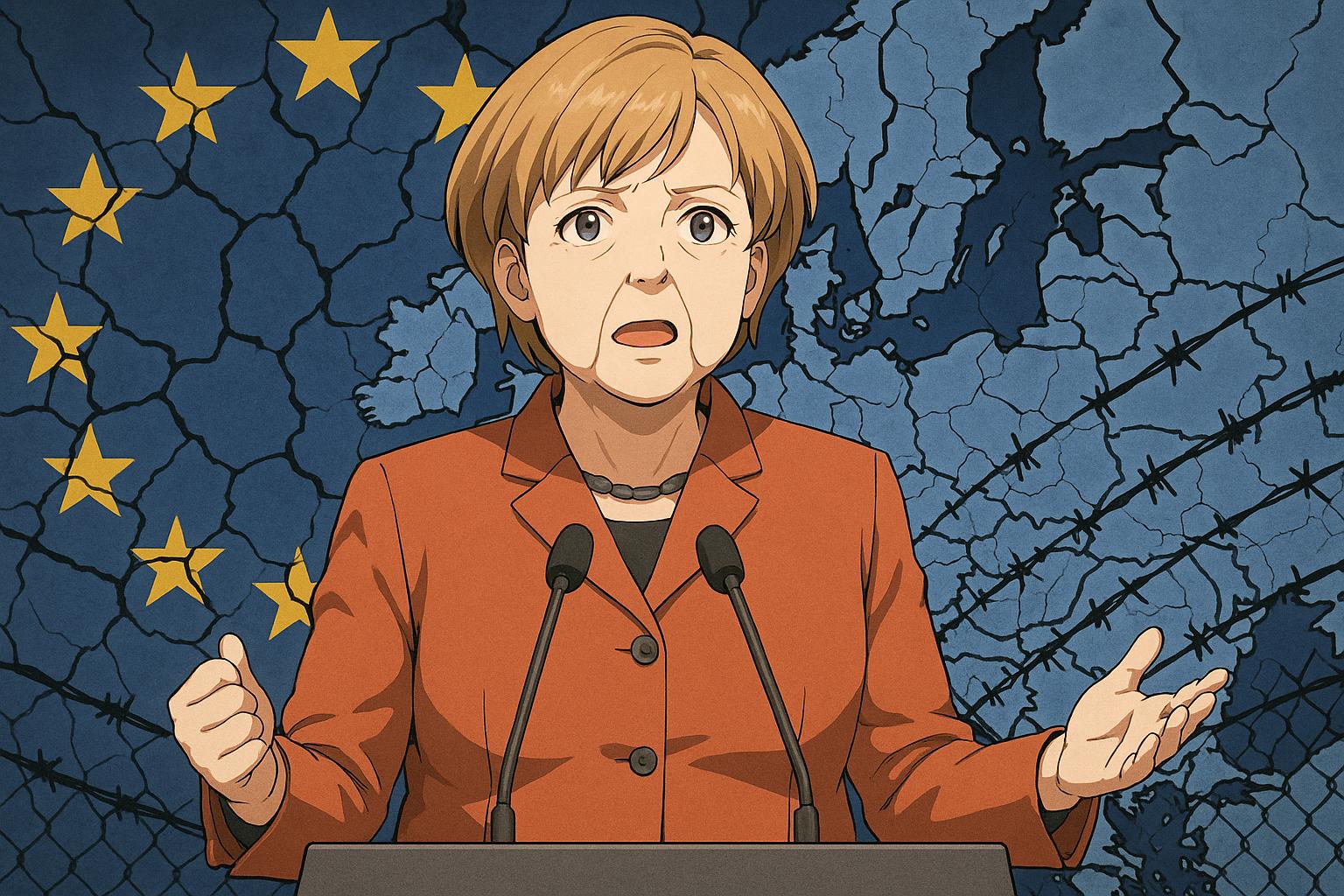Former German Chancellor Angela Merkel has once again entered the political spotlight, issuing a stark warning regarding the precarious future of the European Union. Speaking at the Southwestern Press Forum in Neu-Ulm during a presentation of her memoir, Freedom, Merkel emphasized the dangers posed by tightening border controls and a retreat from collective migration policies. Her remarks come at a time when nationalism is on the rise across Europe, reflecting a troubling drift away from the principles that have traditionally underpinned European unity.
Merkel's comments were triggered by the recent measures introduced by Chancellor Friedrich Merz’s government, which prohibit asylum applications at all German land borders, save for a few exceptions. This stance represents a striking reversal from Merkel's "open-door" policy of 2015, which had allowed over a million migrants into Germany during the Syrian refugee crisis. In sharply opposing this hardline approach, Merkel lamented, “I do not believe we can decisively combat illegal migration at the borders… I have always advocated European solutions.” Her criticisms reveal a deep concern that nationalistic tactics, including unilateral border closures, threaten to unravel the fundamental tenets of the EU, particularly the cherished freedom of movement within the Schengen Area. “Otherwise, we could see Europe destroyed,” she cautioned, encapsulating fears that growing disunity over migration could jeopardize the very fabric of European cooperation.
Her anxiety is echoed by many within the EU who warn that individual states adopting stringent border controls will lead to further disintegration. Such fragmentation could put at stake the Schengen zone's visa-free travel agreement, which has served as a cornerstone of integration and collaboration among member states. The alarming trend of national governments pursuing isolated migration policies, reinstating checkpoints, and rejecting EU-level asylum allocations raises serious concerns about the achievements of the EU.
The backdrop of this policy shift follows significant electoral gains by the far-right Alternative for Germany (AfD) party, which garnered approximately 20.8% of the vote in recent elections. This unprecedented rise in right-wing sentiment has pressured Merz's coalition to adopt stricter migration controls, positioning itself as a counter to the burgeoning influence of the AfD. However, this pivot has not gone without criticism, not just from Merkel and the political left, but also from advocates who warn of the dire implications for asylum seekers.
Merkel’s renewed voice as a critic of the current administration's policies is noteworthy. Even in retirement, her insights carry substantial weight in both German and European politics. Her call for a return to EU-wide solutions starkly contrasts with the populist surge that increasingly sidelines centrist positions.
Nevertheless, the practicalities of enforcing these new border measures are proving to be problematic. Reports indicate that the deployment of an additional 3,000 police officers, alongside the existing 11,000, may only sustain enforcement temporarily. Frontline officials have cited exhaustion and staffing shortages as critical impediments, raising doubts about the long-term feasibility of these policies. Merkel's assertion that unilateral actions may only serve to weaken the EU resonates even more strongly amid these operational challenges.
The current migration landscape in Germany is dire, as it continues to be the primary destination for asylum seekers in the EU. In 2023 alone, Germany received over 237,000 asylum applications—almost a quarter of the total across the bloc. This surge has strained local resources and ignited broader discussions about equitable burden-sharing among EU nations. Merkel's long-standing advocacy for a comprehensive EU-level approach, encompassing coordinated asylum processes and better relocation agreements, has been largely frustrated, particularly by nations like Hungary and Poland, which vehemently oppose mandatory refugee quotas.
Complicating matters further, Merkel's warnings reflect her past assertions that the migration crisis would shape Europe's future. In 2018, she described the migrant issue as potentially a “make-or-break” situation for the EU, emphasizing the need for collective management strategies to stave off deeper divisions and right-wing extremism.
The European Union has faced numerous existential trials in the past two decades, from the Eurozone crisis to Brexit. While the bloc has managed to navigate these challenges, the current debate surrounding migration may represent its most daunting test yet. National governments appear increasingly beholden to local political pressures, jeopardizing years of integration and shared responsibility.
Merkel’s urgent reminder serves as a critical lens on the values that should underpin European unity. As nations skew towards a fortress mentality and a retreat into nationalism, the stakes for cohesion will only continue to rise. The big question remains: will European leaders rise to the occasion and reaffirm their commitment to collective values, or will they capitulate to the fragmentation that Merkel so forebodingly predicts?
Source: Noah Wire Services
